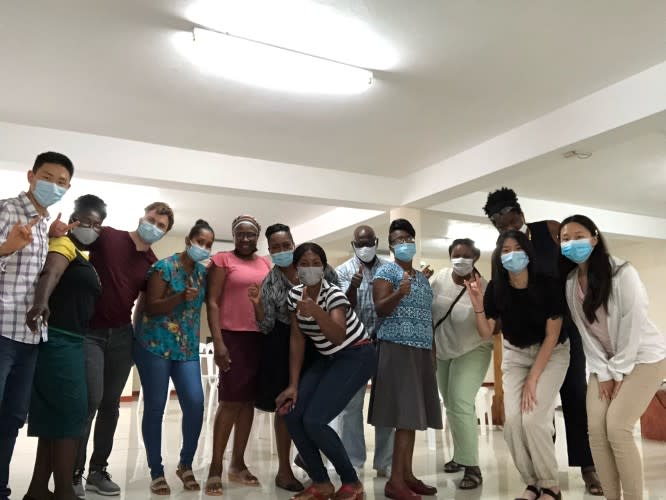Outreach
We firmly believe that scientists have an obligation to disseminate knowledge and skills to the public. Dr. Kemp is particularly interested in engaging demographics underrepresented in the sciences, including but not limited to: women, ethnic minorities, and individuals from low socio-economic backgrounds.
Dr. Kemp has had a lifelong passion for outreach and education. She is an ambassador for the Society of Vertebrate Paleontology. She connects with K-12 educators in order to teach students about the vertebrate fossil record and the history of life on Earth, and regularly speaks at local schools. She is also an instructor in the UTeach program, which trains future STEM educators. She teaches an upper-level undergraduate and graduate-level course entitled Broader Impacts in STEM, which helps student develop strategies to engage diverse audiences in their research.
In Fall 2020, Dr. Kemp, a group of UT undergraduates, and the Negril Education Environment Trust (NEET) received a President's Award for Global Learning Grant to develop a STEM camp for Jamaican students. Because of the COVID-19 pandemic, the group pivoted and developed a Teacher Workshop for primary and secondary schoolteachers in Jamaica to co-develop hands-on, low cost STEM lesson plans based on the National Standards Curriculum in Jamaica. The workshop was a success and the Kemp Lab looks forward to continued collaboration with NEET. Lesson plans developed from this collaboration (along with instructive videos) are available here.
Our lab has developed a number of immersive research experiences for the public, and we present these at local events in the Austin Area, such as Darwin Day and Science Under the Stars. We are actively involved in developing K-12 curriculum based off of our research.
We regularly mentor high school students and undergraduate students in field and lab-based research projects. Students interested in working with us should contact Dr. Kemp about joining the lab! It is never too early, or too late!
From 2021 - 2023, Dr. Kemp directed the Inclusive Student Training in Collections and field-based Topics (InSTInCT) REU, which provided biodiversity-driven research experiences to undergraduate students over 8 weeks in the summer. Project participants have gone on to pursue advanced STEM degrees and careers in the biodiversity sciences.
